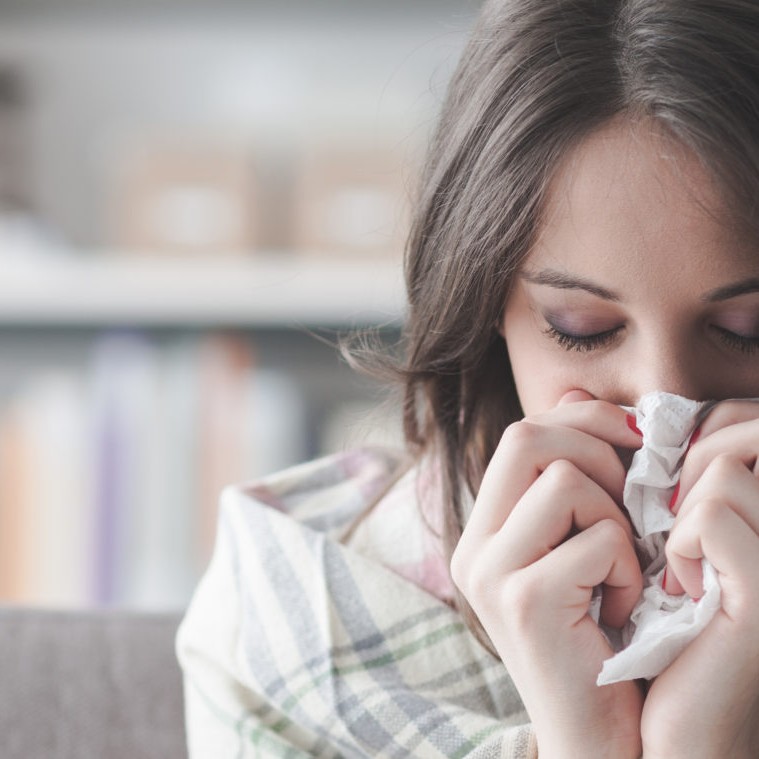If you’re sniffling and sneezing this winter, you might think it’s a winter cold or flu — but it could be allergies.
“In the winter, most of the allergies that you’re going to suffer from are going to be indoor allergies — mold, cockroaches, dust mites and animal dander,” Joan Lehach, M.D., an allergist and clinical immunologist with a focus on integrative medicine at Montefiore Medical Center in New York, told weather.com.
With winter allergies, you’re more likely to have sinus symptoms, so it may feel like a sinus infection that won’t go away.
If your “cold” lasts nine days or more — or if it seems chronic — it’s probably allergies, Dr. Lehach added. “If you’ve had it for more than nine days you really should seek some help.”
People with grass, tree and weed allergies are also typically allergic to dust mites — so if you have outdoor allergies, be particularly aware of your sneezing symptoms this winter.
Your winter allergy symptoms also depend on where you live. People in crowded urban centers are likely to have worse indoor allergies while rural dwellers are likely to have symptoms during warmer months.
The real danger, though, isn’t from the allergies themselves. “Fifty percent of people with nasal allergies go on to develop asthma,” Dr. Lehach said. “Asthma can kill you. The last thing you want to do is develop asthma.”
Like outdoor allergies, your indoor allergy triggers get all over everything in your house — sheets, clothes, skin, even your pets. Dr. Lehach recommends washing your face and hands frequently, and bathing your indoor animals at least once a month.
She also noted that beyond over-the-counter medications, there’s help for allergies. A proper diagnosis of what exactly is causing your symptoms can help you treat the problem. Prescription meds can help some patients manage their allergies while immunotherapy, or allergy shots, can cure allergies altogether.
February 12, 2014
weather.com
You may also be interested in . . .
Six More Weeks of Winter
The first official Groundhog Day celebration took place on February 2, 1887, in Punxsutawney, Pennsylvania, and was the brainchild of local newspaper…
Flu, Allergies, Cold, or COVID?
With the approaching fall season, we typically witness flu and viral season quickly arrive as well. Simultaneously weed pollen, dust mite, and mold…
Do I Have Fall Allergies or the Flu?
Are you feeling tired? Have a scratchy throat? Maybe you nose is running. This is happening to many people right now. You may be wondering what is going…


